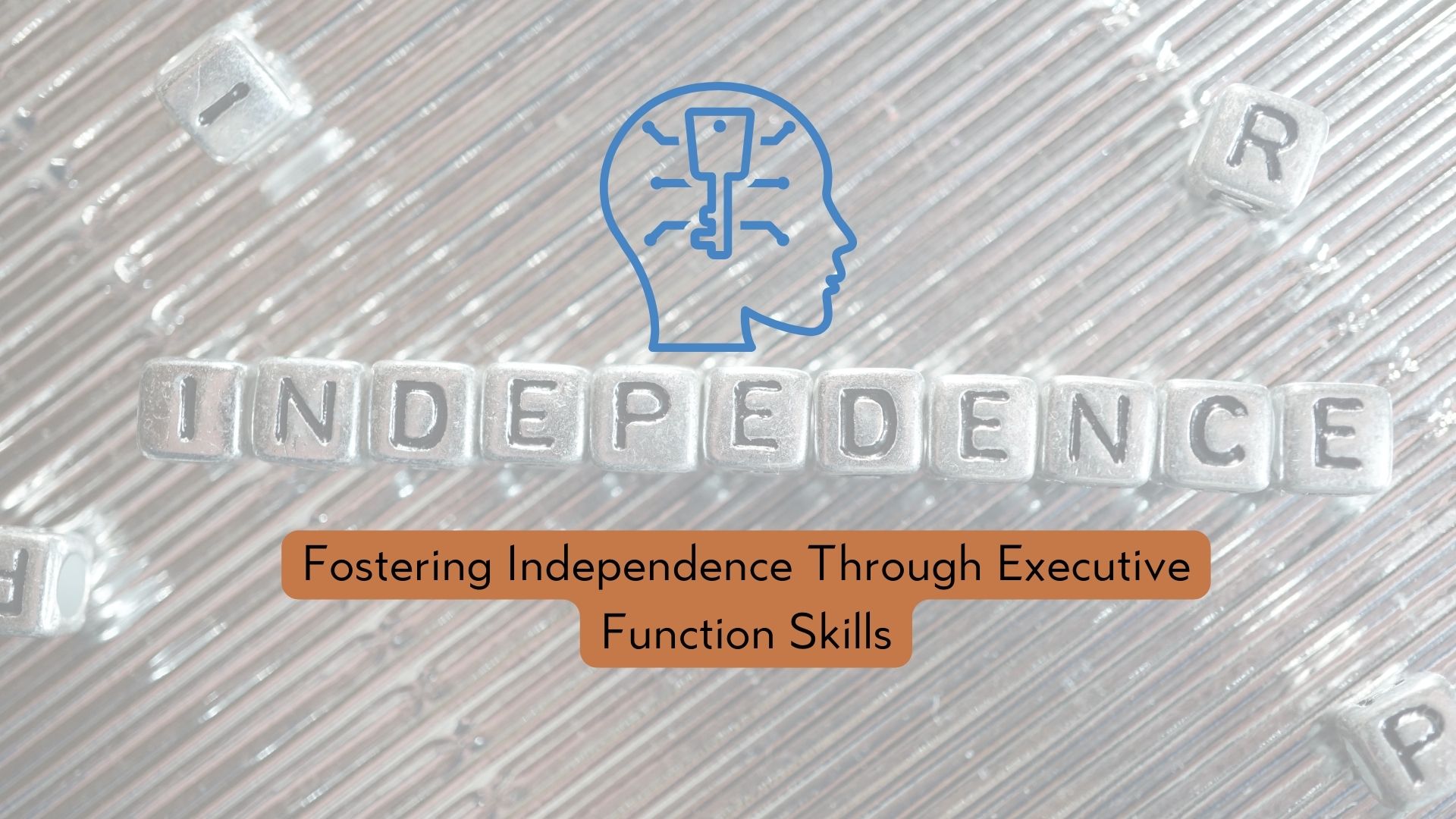
Through Executive Function Skills Independence is a coveted milestone in everyone’s life, whether it’s a teenager eager to explore the world, a college student managing their own schedule, or a professional balancing work and personal life. A critical component of achieving and maintaining independence is the development of executive functions – the mental skills that enable us to plan, focus attention, remember instructions, and juggle multiple tasks successfully. This blog explores how honing these skills can significantly ease navigation through various aspects of life.
Social Independence: Navigating Relationships and Interactions
Executive functions play a pivotal role in social interactions and relationships. By enhancing these skills, individuals can better interpret social cues, manage their emotions, and respond appropriately in various situations.
-
Inhibitory Control:
- Inhibitory controls helps in managing impulsive responses, allowing for thoughtful communication and decision-making in social interactions.
- Example: Choosing words carefully during a heated discussion to maintain harmony in relationships.
-
Emotional Regulation:
- Managing emotions is crucial for responding appropriately in social settings and maintaining positive interactions.
- Example: Staying calm and composed when facing social challenges, such as misunderstandings or disagreements.
Life Management: Organizing Daily Life
Effective life management requires a blend of several executive functions. These skills enable individuals to organize their day-to-day activities, manage responsibilities, and adapt to changes or unexpected events.
-
Organization and Planning:
- Keeping track of personal responsibilities, from paying bills on time to scheduling appointments, is facilitated by strong organization and planning skills.
- Example: Creating and following a weekly meal plan to ensure balanced nutrition and efficient grocery shopping.
-
Task Initiation and Completion:
- The ability to start and complete tasks without procrastination is crucial for personal and household management.
- Example: Regularly initiating cleaning routines to maintain a tidy living space.
Career Advancement: Navigating the Professional World
In the professional realm, executive functions are indispensable for career growth and success. They enable individuals to meet deadlines, collaborate with colleagues, and adapt to the ever-changing workplace dynamics.
-
Time Management:
- Effective time management ensures productivity and the ability to meet deadlines.
- Example: Prioritizing and scheduling work tasks to optimize productivity during peak performance hours.
-
Goal-Directed Persistence:
- Staying focused on long-term career goals, despite challenges and distractions, is key to professional advancement.
- Example: Consistently working on skill development, even after work hours, to achieve career advancements.
Developing Executive Functions for Independence
Building executive function skills can be a focused endeavor, involving strategies such as:
-
Structured Routines:
- Establishing and adhering to routines can enhance organizational skills and time management.
- Example: A daily morning routine that includes time for exercise, planning the day, and reviewing key tasks.
-
Mindfulness Practices:
- Mindfulness techniques can improve emotional regulation and reduce impulsivity.
- Example: Regular meditation to enhance focus and emotional balance.
-
Executive Function Coaching:
- Professional coaching can offer personalized strategies to strengthen these skills.
- Example: Working with an executive function coach to develop tailored strategies for improving organization and planning skills.
The journey to Independence Through Executive Function Skills is intertwined with the mastery of it. Whether it’s building social connections, managing personal life, or advancing in one’s career, these cognitive skills lay the foundation for a more navigable and fulfilling life. By consciously developing these abilities, individuals can set the stage for independence and success across all life’s domains.





